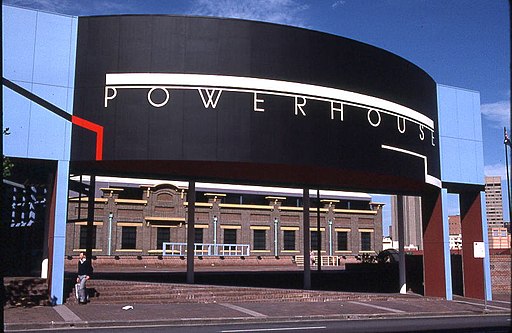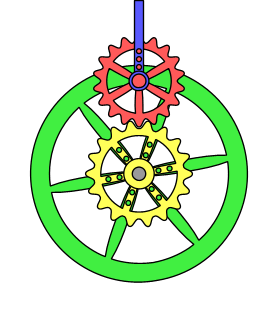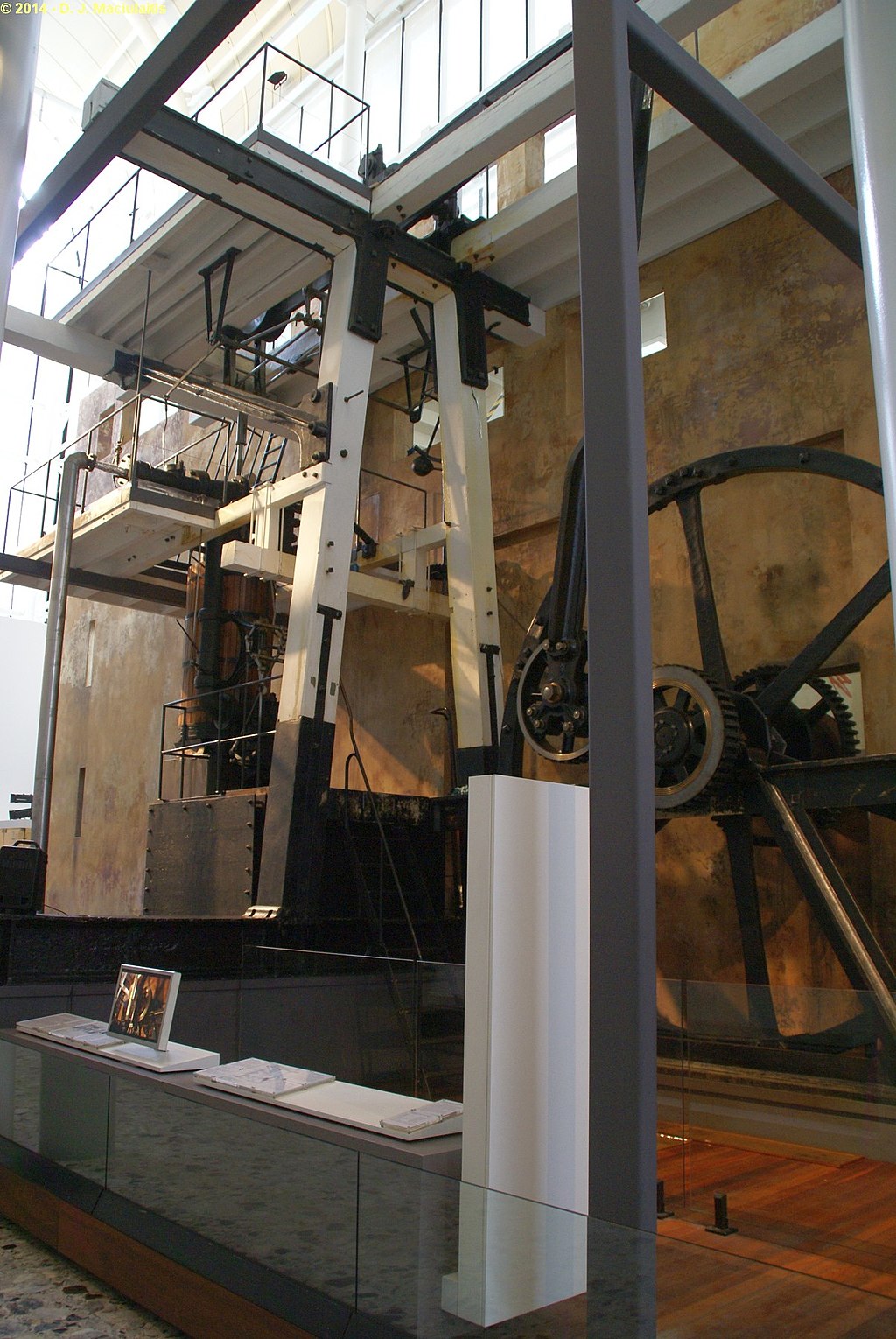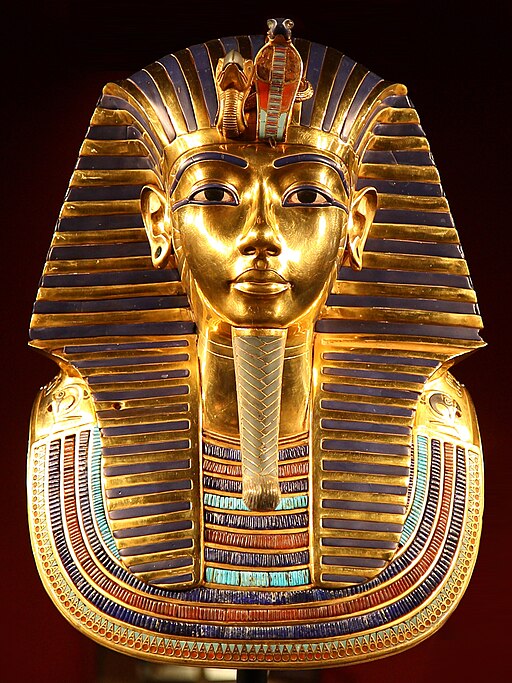
The Powerhouse Museum has a diverse collection encompassing all sorts of technology, including decorative arts, science, communication, transport, costume, furniture, media, computer technology, space technology, and steam engines.
Powerhouse Museum
- Museums: Powerhouse Museum
- City: Sydney
- Country: Australia
- Established: 1879
- Type: Technology, Science and Australian History Museum
- Location: Harris Street, Ultimo, Sydney, New South Wales, Australia
Highlights of the Powerhouse Museum
- Locomotive No. 1
- Whitbread Engine
- Model of Astronomical Clock in Strasbourg Cathedral
Locomotive No. 1

Locomotive No. 1 pulled the first passenger train in 1855 in New South Wales, Australia. It was one of four locomotives that arrived by sea from England, and No. 1 was used for hauling goods and passengers between Sydney, Campbelltown, Richmond, and Penrith.
As newer engines became available, No. 1 was used to haul goods services to Picton and Penrith. T
he locomotive was initially fuelled by local timber and later modified to allow the burning of coal.
Locomotive No. 1 ended its service in 1877, having traveled 156,542 miles (251,930 km).
Locomotive No. 1
- Title: Locomotive No. 1
- Date: 1855
- Built by: Robert Stephenson and Company.
- Power type: Steam
- Designer: James McConnell
- Builder: Robert Stephenson and Company
- Gauge: 4 ft 8 1⁄2 in (1,435 mm) standard gauge
- First run: 1855
- Last run: 1877
- Museum: Powerhouse Museum
Whitbread Engine

This Whitbread Engine was built in 1785 and is one of the first rotative steam engines ever made, and is the oldest surviving.
This engine was designed by James Watt and was manufactured by Boulton and Watt and was initially installed in the Whitbread brewery in London, England. On decommissioning in 1887, it was sent to Australia to be exhibited in an early Technological Museum and has since been restored to full working order.
A rotative engine is a type of beam engine where the reciprocating motion of the beam is converted to rotary motion, producing a continuous power source suitable for driving machinery. The engine is notable for its age the pioneering of four innovations which made Boulton & Watt’s engines a significant accelerator of the Industrial Revolution:
- A separate condenser, which increases the efficiency of the engine by allowing the central cylinder to remain hot at all times.
- The parallel motion, which converts the up-and-down movement of the piston into the arcing motion of the beam. The rigid connection allowed the engine to be double-acting, meaning the piston could push as well as pull the beam.
- The centrifugal governor used to regulate the speed of the engine automatically.
- The sun and planet gear convert the reciprocating motion of the beam into a rotating movement, which was used to drive rotating machinery.
 Sun and planet gear mechanism that translates vertical motion to rotary motion.
Sun and planet gear mechanism that translates vertical motion to rotary motion.
The engine was ordered in 1784 to replace a horse wheel enabling Whitbread to become the largest brewer in Britain.
Connected machinery included rollers to crush malt; an Archimedes’ screw, that lifted the crushed malt into a hopper; a hoist, for lifting items into the building; a three-piston pump, for pumping beer; and a stirrer within a vat. This engine remained in service for 102 years, until 1887.

Whitbread Engine – Watt Rotative Beam
- Title: Whitbread Engine
- Date: 1785
- Type: Watt, Rotative Beam
- Designer: James Watt
- Maker: Boulton and Watt
- Country: England
- Use: Driving brewery machinery
- Museum: Powerhouse Museum

The Model of Astronomical Clock is a working model of the astronomical clock from Strasbourg Cathedral. Richard Smith built it in 1889 for the centenary of NSW.
Smith had never seen the original; however, his work was based on detailed descriptions and pictures of the original.
The clock can be seen in operation, every five minutes before the hour, the twelve apostles who symbolize the passing of the twelve hours of the day parade in the top part of the clock.
When Peter and Judas appear, Satan’s figure also appears in the window to the left of the figure of Jesus. When Peter appears, the cock crows three times.
The figures representing one of the four ages change every quarter of an hour. Also on display in a dial formation are the moon phases and the tides plus the position of the planets.
The case of the clock is decorated with various allegorical figures, including portraits of Nicolaus Copernicus.

The original Strasbourg Cathedral Astronomical Clock
Strasbourg Cathedral is a Roman Catholic cathedral in Strasbourg, France, whose construction starting in 1015. Although considerable parts of it are in Romanesque architecture, it is considered to be among the most excellent examples of high or late Gothic architecture.
The cathedral’s south transept houses an 18-meter astronomical clock, one of the largest in the world.
The current clock dates from 1843 and its main features are the automata, a perpetual calendar, a planetary dial, a display of the Sun and the Moon, and solar and lunar eclipses.
The main attraction is the procession of the 18 inch high figures of Christ and the Apostles, which occurs every day at solar noon.
Model of Astronomical Clock in Strasbourg Cathedral
- Title: Model of Astronomical Clock in Strasbourg Cathedral
- Date: 1887-1889
- Built by: Richard Bartholomew Smith (1862-1942)
- Museum: Powerhouse Museum
A Tour of Museums in Australia
- Museums in Sydney
- Art Gallery of New South Wales
- Australian Museum
- Australian National Maritime Museum
- Museum of Sydney
- Powerhouse Museum
- Hyde Park Barracks, Sydney
- Nicholson Museum
- Norman Lindsay Gallery and Museum
- Museum of Fire
- Museums in Melbourne
- National Gallery of Victoria
- Melbourne Museum
- Shrine of Remembrance
- Hellenic Museum, Melbourne
- State Library of Victoria
- National Sports Museum
- Old Treasury Building, Melbourne
- Old Melbourne Gaol
- Chinese Museum, Melbourne
- Jewish Museum of Australia
- Museums in Canberra
- National Museum of Australia
- National Gallery of Australia
- Australian War Memorial
- National Portrait Gallery
- Museums in Brisbane
- Queensland Art Gallery
- Queensland Museum & Science Center
- MacArthur Museum Brisbane
- RD Milns Antiquities Museum
- Queensland Maritime Museum
- Commissariat Store, Brisbane
- Queensland Police Museum
- Museums in Perth
- Art Gallery of Western Australia
- WA Shipwrecks Museum
- Perth Mint
- WA Maritime Museum
- Fremantle Prison
- Museums in Adelaide
- Art Gallery of South Australia
- South Australian Museum
- Migration Museum, Adelaide
- Museums in Hobart
- Museum of Old and New Art (MONA)
- Tasmanian Museum and Art Gallery
- Museums in Darwin
- Museum and Art Gallery of the Northern Territory
- Darwin Military Museum
- Australian Aviation Heritage Center
Australian Proverbs and Quotes
- Australian Proverbs and Quotes
- Australian Aboriginal Sayings and Quotes
~~~
“We are all visitors to this time, this place.
We are just passing through. Our purpose here is to observe,
to learn, to grow, to love… and then we return home.”
– Australian Aboriginal saying
~~~
Photo Credit: By Sardaka 12:27, 18 October 2007 (UTC) (Own work) [GFDL (gnu.org/copyleft/fdl.html) or CC-BY-SA-3.0 (creativecommons.org/licenses/by-sa/3.0/)], via Wikimedia Commons
Popular this Week








 Sponsor your Favorite Page
Sponsor your Favorite Page SEARCH Search for: Search Follow UsJoin – The JOM Membership Program
Sponsor a Masterpiece with YOUR NAME CHOICE for $5
Share this:
- Tweet
